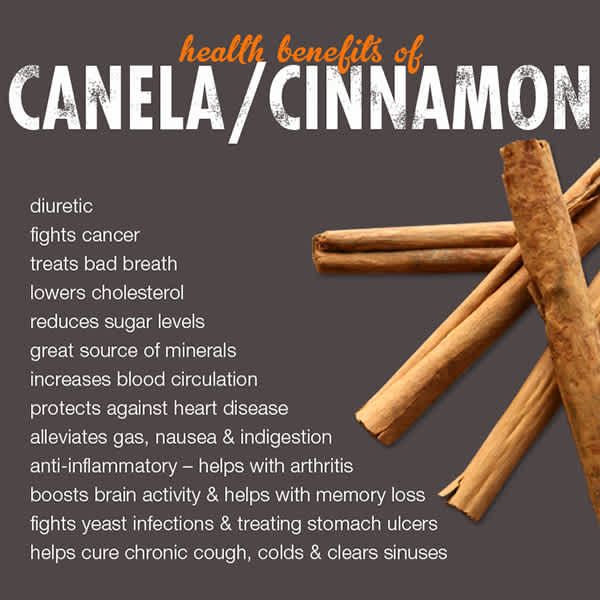
Introduction
Cinnamon is a widely used spice that is known for its distinct flavor and aroma. But beyond its culinary uses, cinnamon also offers a range of health benefits. From promoting heart health to aiding digestion, this spice has been valued for centuries for its medicinal properties. In this article, we will explore the various health benefits of cinnamon and why you should consider incorporating it into your diet.
What is Cinnamon?
Cinnamon is a spice derived from the inner bark of trees belonging to the Cinnamomum genus. It is obtained by cutting the stems of these trees and then extracting the inner bark, which is dried and rolled into cinnamon sticks or ground into a fine powder. There are several varieties of cinnamon available, with the two most common types being Ceylon cinnamon and Cassia cinnamon.
History and importance of cinnamon as a spice
Cinnamon has a rich history dating back thousands of years. It was highly prized in ancient Egypt and was even used as a gift for monarchs and gods. In medieval times, cinnamon was one of the most sought-after spices, often regarded as a symbol of wealth and luxury.
This spice played a significant role in ancient medicine as well. Traditional Chinese and Ayurvedic practices have used cinnamon for its various healing properties, such as reducing inflammation, improving digestion, and increasing circulation.
In modern times, cinnamon continues to be widely used in culinary preparations across the globe. Its warm and sweet flavor adds depth to both sweet and savory dishes, making it a versatile spice in the kitchen. Furthermore, with the growing interest in natural remedies and alternative medicine, cinnamon has gained attention for its potential health benefits.
To capture the full potential of cinnamon's health benefits, it is important to understand its active compounds. Cinnamon contains powerful antioxidants, such as polyphenols, which help protect the body against oxidative damage caused by free radicals. It also contains anti-inflammatory properties, which can help reduce inflammation in the body.
Research has suggested that cinnamon may have a positive impact on several aspects of health. Some of the key benefits of cinnamon include:
-
Blood sugar control: Cinnamon has been shown to improve insulin sensitivity and help regulate blood sugar levels, making it beneficial for individuals with diabetes or insulin resistance.
-
Heart health: Studies have found that cinnamon may help reduce cholesterol levels, triglycerides, and blood pressure, all of which are risk factors for heart disease.
-
Anti-microbial properties: Cinnamon has been found to possess antimicrobial properties, which can help fight against bacteria, viruses, and fungi, making it a natural remedy for certain infections.
-
Anti-inflammatory effects: Cinnamon's anti-inflammatory properties may benefit individuals with conditions characterized by chronic inflammation, such as arthritis.
-
Digestive health: Cinnamon can help promote healthy digestion by reducing gas, bloating, and indigestion. It may also have a mild laxative effect.
It is important to note that while cinnamon offers potential health benefits, it should be consumed in moderation as part of a balanced diet. Excessive consumption can have adverse effects, particularly for individuals on certain medications or with specific health conditions.
In conclusion, cinnamon is more than just a spice used to add flavor to dishes. It has a long history as a medicinal ingredient, revered for its health benefits. From its ability to control blood sugar levels to its anti-inflammatory and antimicrobial properties, cinnamon offers a range of potential health advantages. By incorporating cinnamon into your diet, you can harness these benefits and enhance your overall well-being. [1][2][3][4]

Health Benefits of Cinnamon
Blood Sugar Control and Diabetes Management
Cinnamon is a popular spice known for its sweet and warm flavor, but did you know it also offers numerous health benefits? One of its most significant benefits is its potential to help manage blood sugar levels. This makes it particularly beneficial for individuals with diabetes or those at risk of developing the condition.
Cinnamon's role in regulating blood sugar levels
Cinnamon contains certain compounds that may mimic the effects of insulin, the hormone responsible for regulating blood sugar levels. These compounds help enhance insulin sensitivity and improve the uptake of glucose by cells. This results in more stable blood sugar levels throughout the day.
Potential benefits for individuals with diabetes
For individuals with diabetes, cinnamon supplementation may lead to improved blood sugar control and reduced insulin resistance. Several studies have shown that consuming cinnamon can significantly decrease fasting blood sugar levels and improve markers of insulin sensitivity.
Cinnamon's impact on gut health and digestion
Another area where cinnamon shines is its potential impact on gut health and digestion. It has been used for centuries as a natural remedy for digestive issues, such as indigestion, bloating, and gas.
Restoring the balance of bacteria in the gut
Cinnamon possesses antimicrobial properties, which means it can help eliminate harmful bacteria in the gut. At the same time, it promotes the growth of beneficial bacteria, thus restoring the balance of the gut microbiota. This can improve overall digestion and reduce the risk of digestive disorders.
Potential Anti-cancer Properties
Recent research has also suggested that cinnamon may have potential anti-cancer properties. Several studies have found that cinnamon extracts can inhibit the growth and spread of cancer cells, particularly in colon cancer and leukemia.
Research on cinnamon's role in cancer prevention
The compounds found in cinnamon, such as cinnamaldehyde and epicatechin, have been shown to have anti-inflammatory and antioxidant effects. These properties may contribute to cinnamon's potential in preventing cancer development.
The need for additional studies in this area
While the initial research on cinnamon's anti-cancer properties is promising, more studies are needed to fully understand its mechanisms and determine the optimal dosage for cancer prevention. It is important to note that cinnamon should not replace conventional cancer treatments, but rather be seen as a potential complementary approach.
In conclusion, cinnamon offers several health benefits, including its potential to help manage blood sugar levels, improve gut health, and possibly prevent cancer. Incorporating cinnamon into your diet can be as simple as sprinkling it on oatmeal, adding it to smoothies, or using it in baking recipes. However, it is always a good idea to consult with a healthcare professional before making any significant changes to your diet or starting any new supplements. [5][6][7][8][9][10][11][12][13][14][15][16][17][18][19][20]

Other Health Benefits and Considerations
Potential benefits for maintaining dental hygiene
Cinnamon has been found to have antibacterial and antifungal properties, making it beneficial for oral health. It can help combat bad breath and prevent the growth of oral bacteria that can lead to tooth decay and gum disease. Some dental products even contain cinnamon as an ingredient.
Anti-inflammatory Effects
Cinnamon contains compounds with anti-inflammatory properties, which can help reduce inflammation in the body. Chronic inflammation has been linked to various health conditions, including heart disease, diabetes, and certain types of cancer. By incorporating cinnamon into your diet, you may be able to help prevent or manage these conditions.
How cinnamon's antioxidants help reduce inflammation
Cinnamon is rich in antioxidants, which can help protect the body against oxidative stress and inflammation. These antioxidants counteract the damaging effects of free radicals, unstable molecules that can cause cell damage and contribute to chronic inflammation.
Lowering the risk of chronic inflammation-related diseases
Studies have shown that cinnamon may have a protective effect against chronic inflammation-related diseases. For example, research suggests that cinnamon may help improve insulin sensitivity and blood sugar control in individuals with diabetes. It may also have a cholesterol-lowering effect, reducing the risk of heart disease.
Considerations and potential risks of consuming cinnamon
While cinnamon has many potential health benefits, it is important to consume it in moderation and be aware of any potential risks. Some individuals may be allergic to cinnamon or experience adverse reactions, such as mouth or throat irritation. Additionally, consuming large amounts of cinnamon, particularly Cassia cinnamon, which is commonly found at grocery stores, can lead to excessive intake of a compound called coumarin.
Coumarin content and its impact on health
Coumarin is a natural compound found in cinnamon that can be harmful in high doses. It may cause liver damage and can interact with certain medications. However, the coumarin content is significantly higher in Cassia cinnamon compared to Ceylon cinnamon, which is often considered the “true” cinnamon. Opting for Ceylon cinnamon or using cinnamon in moderation can help mitigate any potential risks.
Interactions with certain medications and possible toxicity
Cinnamon may interact with certain medications, including blood thinners, diabetes medications, and antibiotics. It is important to consult with a healthcare professional before adding cinnamon supplements or consuming large amounts of cinnamon if you are taking any medications to avoid any potential interactions or toxicity.
In conclusion, cinnamon offers various potential health benefits, ranging from dental hygiene maintenance to its anti-inflammatory effects. However, it is crucial to consume cinnamon in moderation and be aware of any potential risks, such as allergies, coumarin content, and interactions with medications. Consulting with a healthcare professional can help ensure safe and appropriate consumption of cinnamon for your specific health needs. [21][22][23][24][25][26][27][28][29][30][31][32][33][34]

Conclusion
In conclusion, cinnamon offers a range of potential health benefits and has been used for centuries in traditional medicine. From its anti-inflammatory and antioxidant properties to its potential benefits in managing blood sugar levels, cinnamon holds promise as a natural remedy and addition to a healthy diet. However, it is important to consume cinnamon in moderation and be mindful of potential allergies or interactions with medication. Consulting with a healthcare professional is recommended before significantly increasing your cinnamon intake or making any drastic dietary changes.
Recommendations for safe and moderate consumption of cinnamon
To experience the potential benefits of cinnamon while ensuring your safety, here are some recommendations for its consumption:
-
Start with small amounts: If you are new to consuming cinnamon, begin with small amounts and gradually increase your intake over time. This allows your body to adjust and reduces the risk of any adverse reactions.
-
Choose high-quality cinnamon: Opt for high-quality cinnamon, such as Ceylon cinnamon, to ensure its purity and effectiveness. Lower-quality cinnamon varieties may contain higher levels of coumarin, a compound that can be toxic in large quantities.
-
Consider the form of cinnamon: Cinnamon is available in various forms, including powder, sticks, and supplements. Choose the form that suits your preferences and needs. However, keep in mind that consuming large quantities of cinnamon powder or taking cinnamon supplements may increase the risk of side effects.
-
Be cautious with cinnamon supplements: If you choose to take cinnamon supplements, carefully follow the recommended dosage instructions. Consult with a healthcare professional before starting any new dietary supplement.
-
Monitor your overall cinnamon intake: Remember that cinnamon can be present in various foods, drinks, and recipes. Consider your total cinnamon intake from all sources when determining your daily consumption.
Note: Please note that the information provided is based on factual data and should not replace professional medical advice. It is important to consult with a healthcare professional before making any significant dietary changes or consuming large amounts of cinnamon.
It's crucial to note that while cinnamon may offer potential health benefits, it is not a substitute for professional medical advice or treatment. Certain individuals, such as those with diabetes or liver disease, may need to exercise caution when consuming cinnamon due to potential interactions or effects on blood sugar levels. Always consult with a healthcare professional or registered dietitian before incorporating large quantities of cinnamon into your diet or making any significant dietary changes.
In conclusion, cinnamon can be a valuable addition to a healthy diet when consumed in moderation and in consultation with a healthcare professional. Enjoy the flavor and potential benefits of cinnamon, but remember to prioritize your overall health and well-being by making informed choices and seeking professional guidance. [35][36]